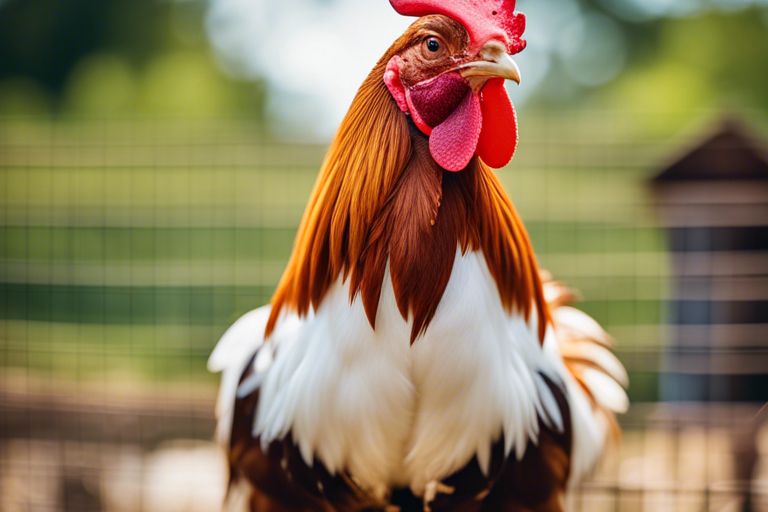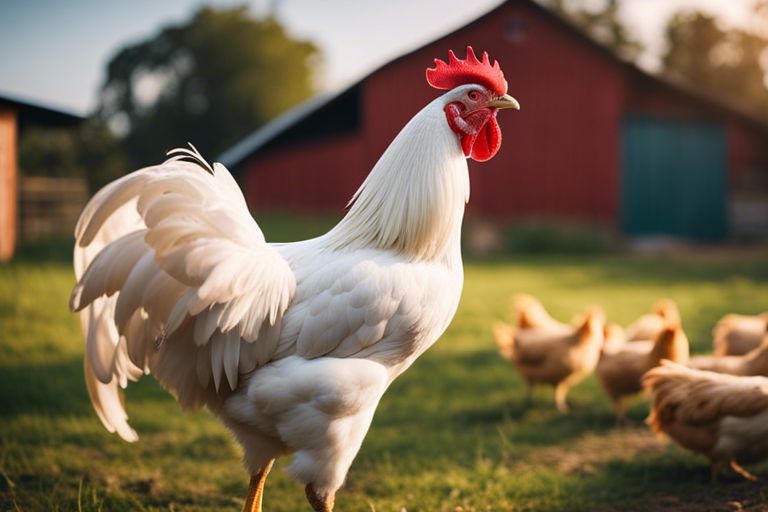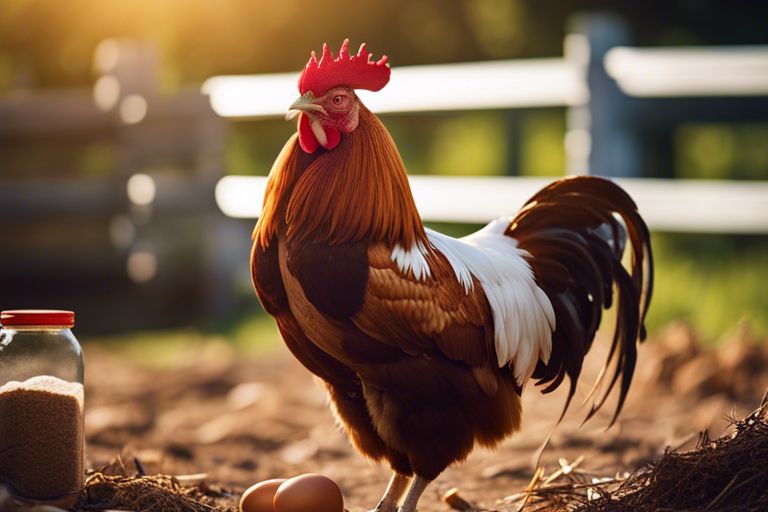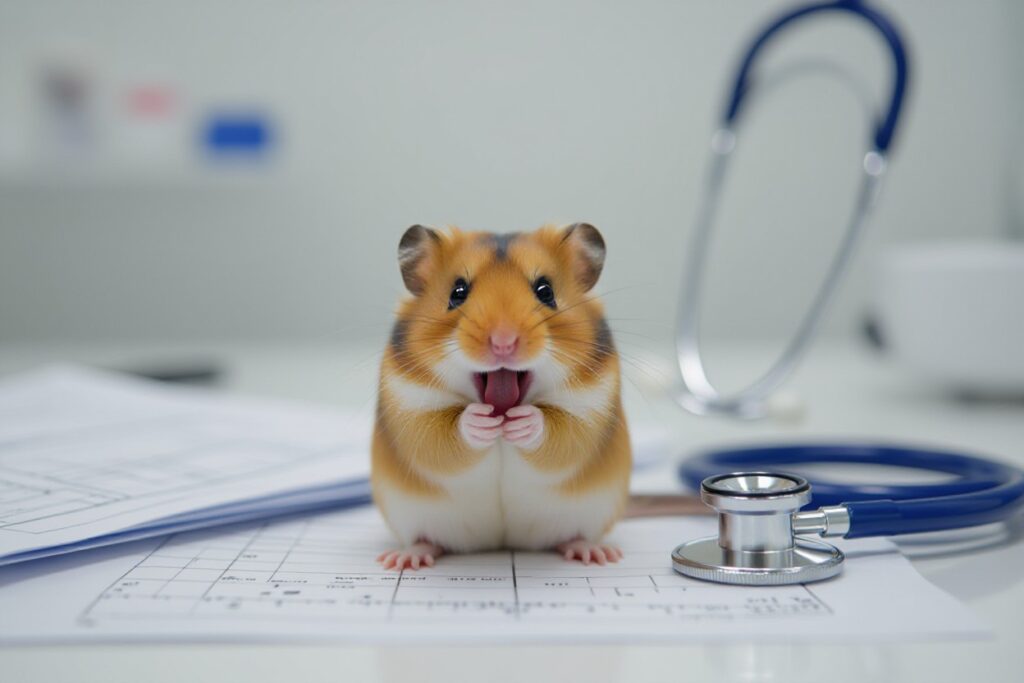Many poultry keepers know the challenges of maintaining a healthy flock, especially when it comes to roosters. Roosters can be prone to various health issues that can affect their well-being and even impact the entire flock. In this guide, we will discuss common health problems that roosters may face and provide valuable tips on how to prevent these issues, ensuring that your feathered friends stay happy and healthy.

Understanding Rooster Physiology and Common Health Concerns
Anatomy of a Rooster
Physiology plays a crucial role in understanding the health of your rooster. Roosters have unique anatomical features that differ from hens. They have larger combs and wattles, spurs on their legs, and distinctive saddle and hackle feathers. Understanding the normal anatomy of a rooster will help you identify any abnormalities or health concerns early on.
Recognizing Signs of Illness
Recognizing signs of illness in roosters is crucial for their well-being. Common signs of illness in roosters include lethargy, loss of appetite, abnormal droppings, respiratory issues, and changes in comb color. Being able to identify these signs early can help you take necessary steps to prevent further complications and provide prompt treatment.
It is crucial to observe your rooster’s behavior daily to notice any changes that may indicate illness. Regular health check-ups can also help in early detection of any health issues.
Preventative Measures and Best Practices
Vaccination and Regular Check-ups
There’s no substitute for a proactive approach when it comes to protecting your rooster’s health. An necessary part of preventative care is ensuring your rooster is up to date on vaccinations and regular check-ups with a qualified avian veterinarian. These visits can help catch any potential health issues early and prevent more serious illnesses down the line.
Diet and Nutrition Tips for Optimal Health
The key to a healthy rooster starts with a balanced diet rich in necessary nutrients. The right mix of high-quality feed, fresh water, and occasional treats will keep your rooster in peak condition. Plus, incorporating a variety of fruits and vegetables into their diet can provide extra vitamins and minerals to support overall health.
- Ensure access to fresh, clean water at all times.
- Offer a balanced diet of commercial poultry feed to meet all nutritional needs.
- Include occasional treats like mealworms or fruits to keep their diet interesting.
After consulting with your avian veterinarian, you can tailor your rooster’s diet to suit their individual needs and preferences. It’s important to monitor their weight and adjust their food intake accordingly to prevent obesity or malnutrition.

How-To Address Specific Health Issues
Treating Respiratory Problems
Assuming your rooster is showing signs of respiratory issues such as coughing, sneezing, or nasal discharge, it is important to isolate the bird to prevent the spread of infection to other chickens. Consult with a veterinarian to determine the cause of the respiratory problem and follow their prescribed treatment plan, which may include antibiotics, supportive care, and improved ventilation in the coop.
Combatting Pests and Parasites
For effective pest and parasite control in roosters, regular inspection of birds and living areas is crucial. Keep coop bedding clean and dry, and consider using diatomaceous earth or herbal pest repellents to deter mites, lice, and other parasites. Additionally, you can use poultry dust or seek veterinary advice for appropriate parasite treatment products.
The health and well-being of your roosters greatly depend on proactively addressing respiratory issues and implementing pest control measures to prevent infestations. By staying vigilant and taking preventive measures, you can help your roosters lead healthier, happier lives.

Environmental and Lifestyle Factors
After genetics, environmental and lifestyle factors play a significant role in the health of roosters. Factors such as the cleanliness of the coop, the stress levels in the environment, and the availability of proper nutrition can all impact the well-being of your rooster.
Proper Coop Maintenance
Factors such as proper ventilation, regular cleaning, and adequate space are important for maintaining a healthy environment for your roosters. Dirty and overcrowded coops can lead to the spread of disease and higher stress levels among the birds. It is crucial to clean the coop regularly, provide fresh bedding, and ensure there is enough space for the roosters to move around comfortably.
Stress Reduction Strategies
Some stress reduction strategies for roosters include providing ample space for movement, avoiding sudden loud noises, and maintaining a consistent routine. Roosters, like other animals, can experience stress when their environment is unsettling or when there are sudden changes in their surroundings. By creating a calm and predictable environment, you can help reduce stress levels in your roosters.
Coop layout and design can also play a significant role in stress reduction for roosters. Ensuring that there are enough roosting spots, hiding places, and areas for dust bathing can help create a more comfortable and stress-free environment for your birds.
Summing up
Roosters can be prone to various health issues, including respiratory infections, parasites, and injuries. To prevent these problems, it is important to provide a clean and well-ventilated environment for your birds, ensure a balanced diet with sufficient vitamins and minerals, and regularly inspect and treat for mites and other parasites. Promptly address any signs of illness, such as lethargy or difficulty breathing, by consulting a veterinarian. By taking proactive measures to maintain the health and well-being of your roosters, you can help ensure they live a long and healthy life.
FAQ
Q: What are common health issues in roosters?
A: Common health issues in roosters include respiratory infections, parasites (such as mites and worms), injuries, and bumblefoot.
Q: How can respiratory infections be prevented in roosters?
A: To prevent respiratory infections in roosters, ensure proper ventilation in the coop, maintain a clean environment, and avoid overcrowding.
Q: What are signs of parasites in roosters?
A: Signs of parasites in roosters include feather loss, weight loss, lethargy, and visible parasites on the skin or feathers.
Q: How can parasite infestations be prevented in roosters?
A: To prevent parasite infestations in roosters, regularly check and treat them for mites, lice, and worms, and keep their living quarters clean.
Q: What should be done if a rooster gets injured?
A: If a rooster gets injured, clean the wound with an antiseptic solution, apply a wound dressing, and isolate the rooster from other birds to prevent further injuries.
Q: What is bumblefoot in roosters?
A: Bumblefoot is a condition in roosters where the foot pad becomes infected and swollen, often caused by bacteria entering through a cut or scrape on the foot.
Q: How can bumblefoot be prevented in roosters?
A: To prevent bumblefoot in roosters, provide clean and dry bedding, trim overgrown toenails regularly, and check for any cuts or injuries on the feet.











